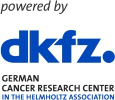Description
Treatment of acute myeloid leukemia (AML) remains challenging due to its heterogeneity and lack of suitable target antigens. We recently discovered that treatment with hypomethylating agents, including 5-Azacytidine, induced the surface protein expression of CLEC12A (CLL-1) on leukemic blasts and leukemia-initiating cells in up to 92% of AML patients, but not on hematopoietic stem cells. This offers an attractive target for CAR-based immune cell therapy. Therefore, the NoviCARAZA joint funding project aims at developing a combination therapy of Azacytidine with CAR-engineered natural killer (NK) cells as off-the-shelf treatment option for hematological malignancies, combining targeted cytotoxicity and innate immune responses. To enhance anti-leukemic activity, we developed a CLEC12A-CAR-NK cell product featuring a novel VHH binding domain identified via llama immunization and yeast surface display. Combined with a 4-1BB-CD3ζ signaling domain and IL-15 armoring as CAR construct, these VHH-CAR-NK cells showed enhanced in vitro cytotoxicity compared to scFv-based CAR-NK cells and non-transduced NK cells. Cytotoxic efficiency was especially promising at low effector-to-target ratios. In an OCI-AML2 xenograft model, VHH-CAR-NK cells reduced tumor burden and increased survival more efficiently than the scFv-based counterpart, demonstrating their potential as effective AML-targeting cell therapy. Finally, advanced CRISPR/Cas9-based editing of the CLEC12A-CAR-NK cells led to further optimization of their high and promising anti-leukemic efficacy.
| Preferred type of presentation |
|---|

